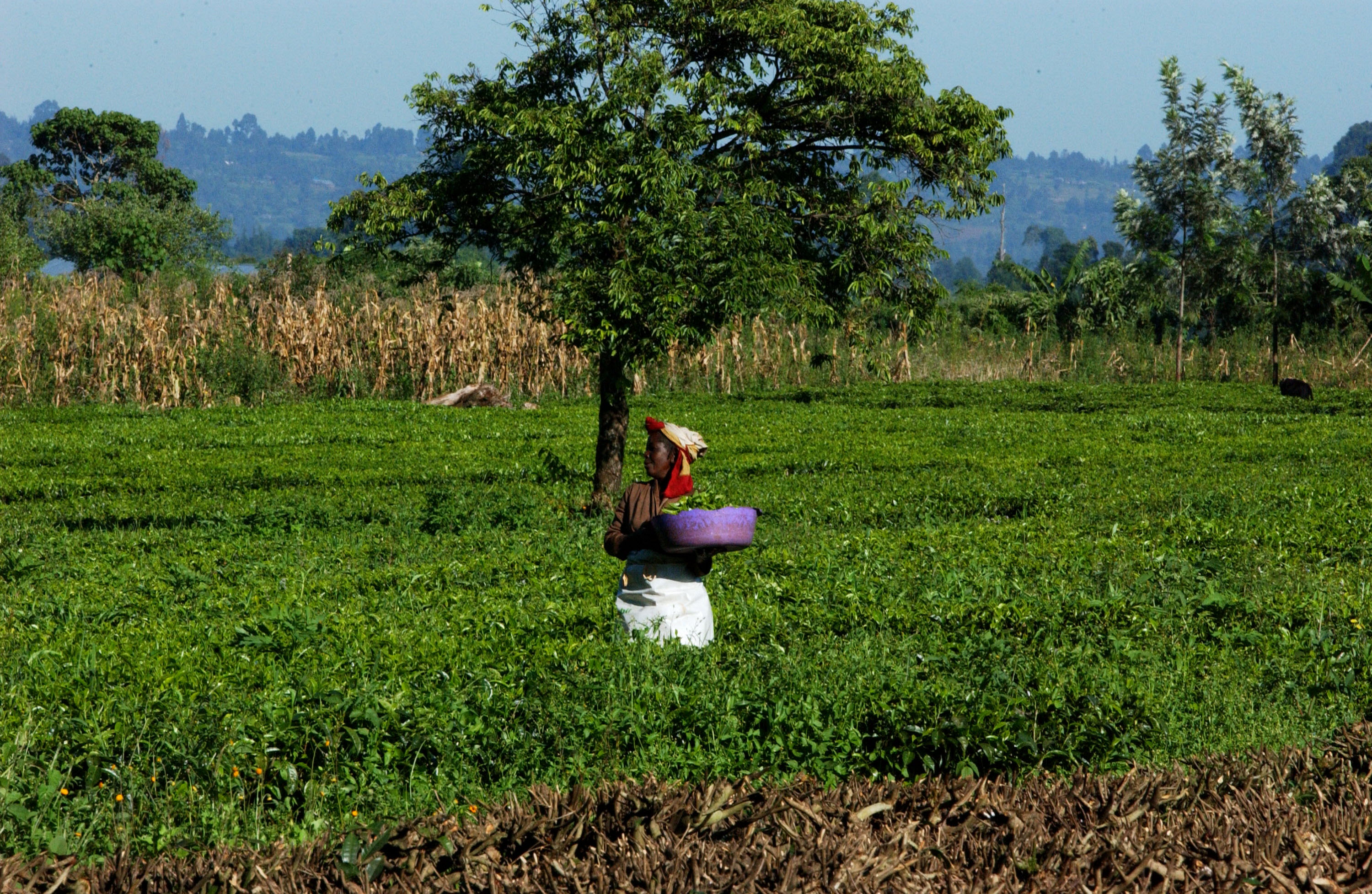International Tea Day 2023: Supporting smallholder tea producers is an integral part in the transformation of agrifood systems
Digitalization, innovation-driven solutions and access to finance are essential for the tea sector’s sustainability, FAO Director-General says

Workers picking tea leaves in Kenya.
©FAO/Ami Vitale
“In the last three years, the world has faced significant challenges, due to conflicts and economic downturns caused by the COVID-19 pandemic, in overlap with extreme weather events due to the climate crisis.” FAO Director-General QU Dongyu said in his opening remarks. “The tea industry can become an engine for economic growth and for restoration of the ecosystems. It can contribute to our fight against poverty and hunger, and represents a major source of income and employment, especially for rural communities,” he added.
The focus of this year’s celebration is smallholder tea producers and Qu underlined their importance for the sustainability of the sector. “We want to celebrate their achievements, but also raise awareness about the significant challenges they face, and the urgent need to mobilize political will to support them,” he said, adding that “we must all work together and leverage all possible means, including increased and more targeted public and private investments, to transform the tea sector.”
Tea is the world’s most consumed drink, after water, and can bring health benefits and wellness to consumers. Over the past decades, the global tea industry has seen rapid growth, with a remarkable rising number of consumers globally. Especially, tea consumption by the youth segment of the market has expanded.
Additionally, the tea sector contributes to socio-economic development, representing a major source of employment and income for millions of poor families worldwide.
Global tea production amounts to over $18 billion annually. Around 13 million people are involved in global tea production. It is estimated that in the four major producing countries (China, India, Kenya and Sri Lanka), around 9 million tea farmers are smallholders.
Significant challenges for smallholders
Smallholders, many of whom are women, account for 60 percent of global tea production and they are the “backbone” of sector, the FAO Director-General said. He emphasized that “tea constitutes the main source of subsistence for millions of poor families, mostly in lower-income countries,” but they face several challenges, including low farm gate prices, weak extension services, limited market channels, poor access to credit and technology, and obstacles to meet quality standards. “We need to build on these developments and make every effort to ensure that the tea sector benefits smallholder growers and rural communities, not only in the short, but also in the longer term.”
The FAO Director-General also underlined that small-scale tea operations should constantly innovate and explore new ways of doing things better in order to remain viable in an increasingly competitive market setting. “Digitalization and innovation-driven solutions, as well as access to finance, are essential to the future sustainability of the tea sector and to increase its contribution to the 2030 Agenda and achieving the SDGs (Sustainable Development Goals). This is where support is needed most,” he added.
In his address to the ceremony the Minister for Plantation Industries of Sri Lanka Ramesh Pathirana, said Sri Lanka is one of the four largest tea producing countries, while smallholders take major part of the tea sector. However, economic downturns in the recent years have impacted the tea production, while the country has started to promote digital solutions to help tea farmers improve tea quality and quantity.
Other speakers in the high-level event, representing their respective Ministers, included the Permanent Representative of the People's Republic of China to FAO, GUANG Defu; the Permanent Representative of Rwanda to FAO, François Nkulikiyimfu; and the Chief Executive Officer of the Tea Board of Kenya, Peris Mudida. The Chairperson of FAO Intergovernmental Group (IGG) on Tea, Sharon Hall, also took part in the panel.
The event was moderated by FAO Deputy Director-General, Maria Helena Semedo, while FAO Chief Economist, Máximo Torero, provided closing remarks.
Showcasing the tea sector’s role in supporting rural livelihoods
Also as part of the day’s celebration at FAO, an exhibition and a tea-tasting event took place in collaboration with the United Nations Women’s Guild.
The exhibition aims to educate visitors about the key role the sector plays for smallholders and rural livelihoods, and its contribution to the achievement of the Sustainable Development Goals, and also showcase the significance of women along the tea value chain.
FAO’s work on tea
FAO is committed to achieve an efficient, inclusive and sustainable tea sector. Activities include the development of knowledge products and the provision of data and information on tea markets and trade, medium-term projections for the world tea market and relevant information on the sector, with the objective to enhance market transparency and inform policy decisions.
The FAO Intergovernmental Group (IGG) on Tea - one of FAO’s oldest commodity groups and a subsidiary body of the Committee on Commodity Problems (CCP) - represents a forum for intergovernmental consultation and exchange on trends in production, consumption, trade and prices of tea, including regular appraisal of the global market situation and short term outlook and review of policy developments.
Contact
Xiaoping Zheng FAO News and Media (Rome) [email protected]
FAO News and Media (+39) 06 570 53625 [email protected]
